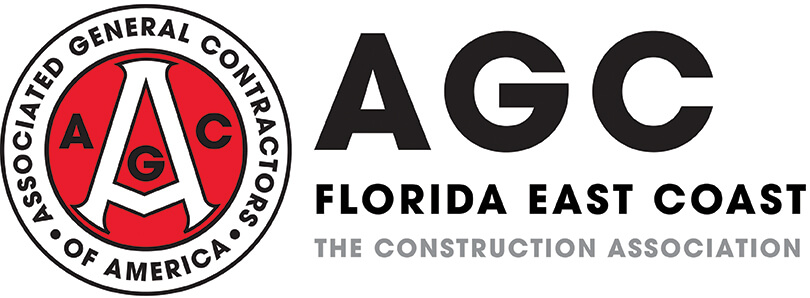The Palm Beach Post: Palm Beach County to create a building recertification process but it may not be 40 years
Hannah Morse
Published: 4:17 p.m. ET July 13, 2021 Updated: 5:26 p.m. ET July 13, 2021
Palm Beach County will “not move swiftly, but deliberately” to define its own mandatory recertification process for high-rise buildings following the deadly condominium collapse in Surfside last month.
County Mayor Dave Kerner offered that description Tuesday to explain how his colleagues wanted county officials to develop these rules, mindful of the fact that the cause of the June 24 collapse is not yet known.
“I think we have to really be cognizant of what we’re doing here and not overreact,” Vice Mayor Robert Weinroth said. “Was it a sinkhole? Was it the fact that it was just ineffective design? Was it that the limestone was leaching because of water intrusion? Is it sea level rise? These are none of the things that we know until forensic structural engineers get in there and start making some decisions.”
On Monday, a section of rebar reinforced concrete is lifted from the remains of the Champlain Towers South condo in Surfside.
County commissioners said they want to follow Miami-Dade and Broward counties’ footsteps to require regular inspections of high-rise buildings, likely more often than 40 years. But they will let a working group — made up of the League of Cities, municipal building officials, fire marshals and engineers — hash out details and options such as which buildings should be regularly inspected and how often.
Commissioners will likely hear a progress update of these deliberations next month.
Officials also pointed to Tallahassee, saying state leaders should make uniform changes that apply to all the 67 counties.
“I’m not one for pre-emptions, but in this situation, this needs to be done statewide,” Commissioner Melissa McKinlay said. “If a couple other counties decide not to do anything, everyone’s insurance rates are going to be affected.”
Added State Rep. Joe Casello, a Boynton Beach Democrat who attended Tuesday’s meeting: “This is not going to be solved by patchwork ordinances, rules, regulations, policies. This is going to be solved at the state level in Tallahassee.”
Doug Wise, director of the county’s building division, assured commissioners that he was not aware of any Palm Beach County high-rise buildings being in immediate danger. The county has a process to inspect a “questionable building” only when brought to the building department’s attention.
“I believe the buildings of Palm Beach County are safe and residents can rely on building officials, and the inspectors in this county have been working for decades to keep them safe. What happened there is a tragedy and I wouldn’t wish that on anybody,” Wise said. “In this county, that wouldn’t happen.”
Wise said he was “angry” after learning that the Champlain Towers South condo board knew about required maintenance years before the collapse, and action was delayed until this year.
“If you defer maintenance, it’s going to cost more. It might cost lives,” he said. “It costs what it costs. You live on the beach. Maintain it.”
The state should also address changes to the state’s condo laws, Wise added.
“You have volunteers, unpaid volunteers, serving as the president, as the vice president, as the treasurer basically dealing with these condos and millions of dollars in potential fees to repair and maintain these condos. I think that’s where there really is serious legislation needed,” Wise said. “It should have never gotten that bad.”
Commissioner Maria Sachs, a former state legislator who worked on the law that required fire sprinklers be installed and elevators inspected in condominiums, said she “always felt the responsibility for public safety lies in government.”
“When I cross that street, I know that light is going to work, not because of the engineer who put it in, but because of my government who makes sure that the light works. When I push a button in an elevator, I know it’s going to get me up and down because public safety is the No. 1 obligation of government.”
Looking at condominium buildings in Palm Beach County — excluding apartment buildings, congregate living facilities and duplexes — the majority of them sit within municipal boundaries, out of the jurisdiction of the county government. Most were built before 1989.
There are 44 condominiums taller than 20 stories in the cities, almost half of them built before 1980. None is in the unincorporated part of the county.
Another 107 condominiums are between 11 and 20 stories high in Palm Beach County, 40 of which were built before 1980, and just two are outside of city limits.
Commissioners suggested that the League of Cities’ working group take a look at best practices in other areas, consider requiring that tenants be notified of maintenance inspections and offer help to smaller municipalities where most of these buildings sit. Meanwhile, the county will continue to analyze the state of its high-rise buildings and plans to send a letter to building owners to strongly urge them to inspect their buildings.
Michelle DePotter, CEO of the Florida East Coast Chapter of the Associated General Contractors of America, agreed that the county should take its time to develop meaningful rules.
“No one wants a false sense of security. Nothing would be worse than new legislation that does not actually provide more protection,” she said.
